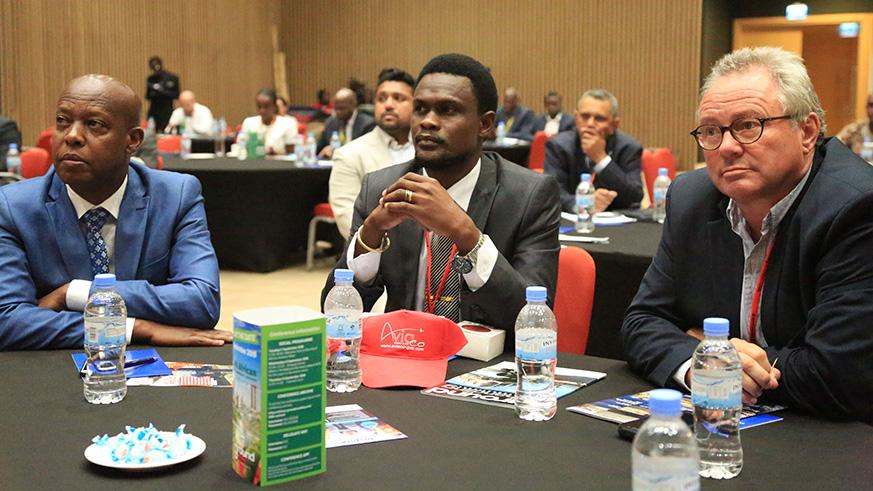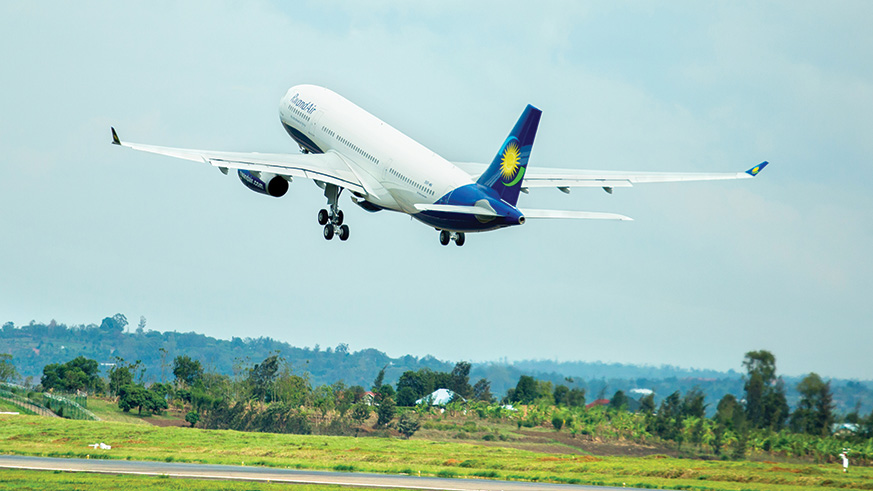PBS: Escaping Eritrea … [Read More...] about ካብ ውሽጢ ቤት ማእሰርታት ኤርትራ
Africa’s aviation industry captains chart new course
Julius Bizimungu | September 13, 2018 | The New Times

Africa’s aviation market is predicted to top the global charts over the next 20 years. The industry growth is projected to be around 6 per cent on an annual basis, and it is a sector that many players believe has untapped potential.
At the moment, however, Africa accounts for less than 2 per cent of the global air service market, according to the World Bank. The sector is generally facing seismic challenges around interconnectivity and co-operation.
Hassan El-Houry, an aviation expert, argues that African aviation is an industry operating far below its potential. In his new book, Fly Africa, which he co-authored with Eric Kacou, makes a case for Africa’s aviation sector.
Indeed, the potential that the continent’s aviation sector has is unprecedented. This is seen in countries like Ethiopia which leads the continent in the sector, Kenya, Egypt, South Africa, and Morocco.
“Rwanda is one of the few countries in the region that have proved that aviation can be developed,” El-Houry, who is also the Chief Executive Officer of National Aviation Services (NAS), a Kuwait-based company, says.
Most of the African countries that have prioritised aviation, are creating economic impact – jobs, receipts and contribution to the Gross Domestic Product (GDP), he says.
“Things are improving very fast and that is to the benefit of passengers, airlines and countries’ economies. Last year Africa was the most improved continent from aviation safety perspective,” El-Houry says.
This week, airlines executives, policy makers and services providers convened in Kigali at the African Aviation Week to discuss how the industry can realise its growth potential. Many, like El-Houry, were optimistic about the future of the industry.
NAS announced it would invest $50 million in Africa’s aviation sector for the next three years. One important argument experts make is that Africa needs aviation connectivity to fast-track growth. Unfortunately, El-Houry says, a lot of governments support national carriers by limiting outside competition, and this means less connectivity.
It is a fact that connectivity is a big problem in Africa. Currently, the average African airport serves far fewer cities than a similar sized airport in Europe, North America or Asia.

In addition, travelling within Africa is more expensive than travelling within Europe. A study revealed that a dollar spent in economy class in Africa enables passengers to travel 6.04km. But the same dollar spent in Europe propels passengers an average of 44.44km.
Liberalising Africa’s skies
According to Jabes Okeyo, an expert from Kenya, liberalising African aviation is very critical to realising its full potential, and this should be a deliberate move by all countries in the region.
“We need to remove barriers of African airlines travelling within Africa,” he says, pointing out how many African countries still block other African countries’ airlines to fly in their countries.
This year, the African Union unveiled what is ostensibly a transformative initiative for Africa’s aviation, the Single African Air Transport Market (SAATM). However, there are only 23 out of 54 countries that have so far signed up to the agreement.
These experts strongly believe that many African nations are still making it hard for their neighbouring countries to thrive. If this trend continues, they say, Africa risks not just lagging far behind but losing the competitive advantage.
Okeyo also believes the continent has not been innovative as the rest of the world, highlighting lack of acquisition of technology as one of the factors slowing the performance of the sector.
“For instance, we haven’t been able to introduce new generation of equipment that makes ground handling efficient. This can be possible only if we invest in local manufacturing industries,” he says.
Another factor he highlights is the interference of African governments in running aviation, arguing that the private sector should be allowed to run the sector if the continent is to reap big from the industry.
“Aviation is supposed to be run as a business model, not as political model,” he notes.
